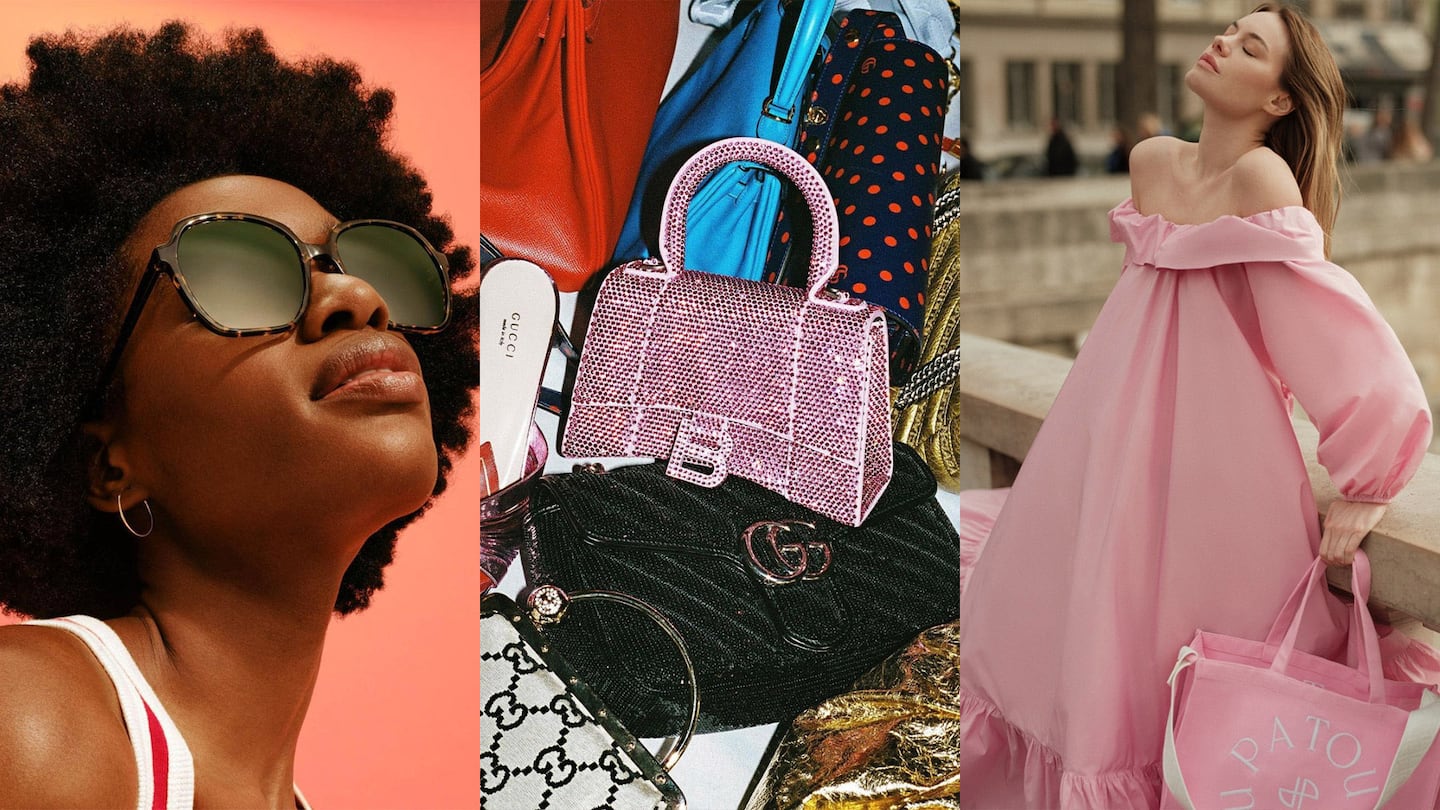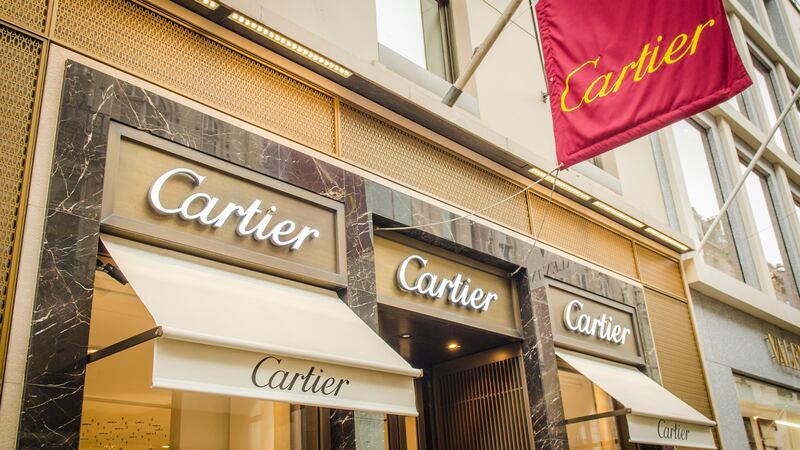
The Business of Fashion
Agenda-setting intelligence, analysis and advice for the global fashion community.

Agenda-setting intelligence, analysis and advice for the global fashion community.

This week, Warby Parker gave long-suffering e-commerce investors a spark of optimism.
The eyewear retailer reported Tuesday that its first-quarter revenue grew 12 percent over the same period last year to $172 million, while it reduced its net loss to $11 million, from $34 million a year prior. Warby credited a range of cost-cutting measures, including cutting and realigning its marketing spend.
The brand is closer than ever to its goal of profitability, but the results were not enough to renew investors’ enthusiasm, let alone convince them that digitally native brands can achieve and sustain both top- and bottom-line growth. The company’s stock closed less than 1 percent higher on Tuesday and fell 4 percent the following day. Its share price is down 20 percent this year.
Amid an ongoing e-commerce slowdown, companies are at a crossroads. They can slash costs to generate profits or spend money to fuel sales growth, but likely not both, analysts say. Either choice requires sacrifice: Warby Parker is closer to profitability, but its rate of growth has slowed from before its Sept. 2021 IPO as its run fewer ads. Luxury e-tailer Mytheresa is profitable, but even as it grew sales by 17 percent year over year in first-quarter results out Tuesday, its EBITDA contracted nearly €8 million ($9 million) to €3 million ($3.3 million).
ADVERTISEMENT
Both companies’ stocks trade well below their public market debuts. Investors seem to have reached the conclusion that the digitally native fashion and beauty sellers might someday operate in the black, but they’ll never become the fast-growing, profit-minting machines that their backers once hoped they would be. It’s that dream that had allowed some of them to command sky-high valuations when they first floated. (Warby Parker’s was $4.5 billion at its IPO price; it’s $1.3 billion today. For others the decline is even more dramatic: Allbirds’ market capitalisation is $190 million, down from $2.1 billion at its public debut).
“If you want to grow at some high level there’s a cost that is going to come with it,” said Tom Nikic, senior equity research analyst of footwear and apparel at Wedbush Securities. “You can’t simultaneously drive strong double-digit growth while significantly reigning in expenses.”
Simply narrowing losses won’t change the current sense of trepidation around the category. One problem is companies are relying on profit-driving tactics that may depress sales today but they hope will lead to growth down the line. But there are few success stories that can reassure investors that those revenue bumps will eventually arrive.
The RealReal, for one, is focused on selling higher-priced pre-owned goods like Hermès bags and Rolex watches, which justify the high costs of authentication and storage. But its gross merchandise value — transactions done on the platform — is expected to drop as much as 5 percent year over year in 2023 as customers hunting for more affordable pieces look elsewhere, analysts say. Will enough wealthy customers use the platform to make the pivot worth it? Time will tell.
Luxury e-tailer Mytheresa also wants to boost its sales among its highest-earning consumers, and it’s willing to sacrifice some profits to get there. Gross merchandise value from top clients rose 37 percent year over year in the first three months of 2023. But marketing costs — which includes exclusive events for top clients, like a visit to Schiaparelli’s atelier — also grew by 10 percent to €26 million. Mytheresa’s adjusted EBITDA margins contracted to nearly 2 percent from 6 percent a year earlier.
Mytheresa’s chief executive Michael Kliger told BoF that while the company “took a step back on profitability,” it’s on firm footing to navigate an economic rebound.
“We fared much better than ever. That’s why we feel we shouldn’t change our strategy,” he said.
Few fashion e-commerce players can afford to take Mytheresa’s approach anymore; they have no profits to sacrifice, and other options to raise cash are unappealing. For instance, Allbirds also reported first-quarter results this week, which showed sales dropping 13 percent from a year earlier, to $54 million, as the sneaker brand halted store openings and cut marketing. It needs to cut costs while it works to win customers back to its wool sneakers.
ADVERTISEMENT
THE NEWS IN BRIEF
FASHION, BUSINESS AND THE ECONOMY

Richemont profit gains as China rebounds. Operating profit was €5.03 billion ($5.5 billion) and sales rose 14 percent at constant currencies in the year through March, Richemont said Friday, beating analysts’ estimates.
Italian fashion group Tod’s sales jumped in Q1, beating expectations. Sales at Italian fashion group Tod’s rose by 23 percent in the first quarter of the year, beating analysts’ forecasts thanks to a strong performance in China and despite moderate growth in the Americas.
Prada’s Q1 revenues jumped 22 percent, surpassing €1 billion. Prada sales jumped 22 percent in the first quarter, beating consensus estimates. Retail sales at the group’s flagship Prada brand grew 21 percent, while Miu Miu accelerated sharply, with sales up 42 percent.
Adidas will sell its Yeezy inventory. Adidas will sell its remaining inventory of Yeezy sneakers rather than destroy them, CEO Bjørn Gulden told shareholders at the company’s annual meeting Thursday, ending months of speculation about the pile of unsold stock with an estimated worth of €1.2 billion ($1.3 billion). Adidas also told investors that an investigation into Ye’s workplace misconduct did not substantiate claims of harassment.
Tapestry lifts forecast as Coach bags defy US luxury gloom. Tapestry Inc raised its annual profit forecast, betting that price increases, strong demand for its Coach handbags and a sharp rebound in China would shield it from a wider slowdown in US luxury purchases.
Walter Albini relaunch confirmed. Bidayat, a fund controlled by Egyptian entrepreneur and investor Rachid Mohamed Rachid, is set to relaunch Italian label Albini after acquiring its IP and archive, BoF confirmed. Rachid declined to comment on unconfirmed media reports that former Gucci creative director Alessandro Michele is involved.
ADVERTISEMENT
Aditya Birla Fashion and Retail acquires TCNS clothing. The Indian company will take a 51 percent stake in the local fashion group in a deal valued at 1650 crore rupees (about $202 million).
ThredUp and The RealReal inch closer to profitability. Despite making progress on their respective profitability goals, investors for both online resale sites were hardly impressed Tuesday afternoon when the companies reported first-quarter earnings.
At Warby Parker and Allbirds, signs of progress. The eyewear maker’s sales rose 12 percent year-over-year in the first quarter of the year on the strength of its growing store fleet. The sneaker seller saw its sales drop 13 percent to $54 million in the first quarter, but that dip was lower than anticipated.
Asos reports first-half loss as shoppers cut back. Asos, Britain’s one-time poster child for the shift to online fashion retailing, swung to a first-half loss, hurt by a squeeze on household budgets and elevated product returns but said it was confident of a return to profit in the second half of the year.
Britain’s JD Sports to buy France’s Courir in a $572 million deal. The retailer has proposed buying France’s Groupe Courir for an enterprise value of €520 million ($572 million), in what would be the British group’s first acquisition since setting out ambitious expansion plans in February.
JD.com beats estimates for quarterly revenue. US-listed shares of the Beijing-based company rose nearly 4 percent in trading before the bell.
Victoria’s Secret is rebooting its scandal-plagued fashion show as a movie. Victoria’s Secret & Co. will bring its famed fashion show back as a feature-length film this autumn after a four-year hiatus, showcasing artists and designers from around the world.
Reformation’s IPO push bets on going green in $200 eucalyptus pants. Fast-growing womenswear maker Reformation will be the next big test of whether a brand pitching sustainability can win over a wider audience and deliver on environmental promises.
THE BUSINESS OF BEAUTY

Ad watchdog cracks down on misleading health and beauty claims. The advertising watchdog is banning growing numbers of advertisements that exaggerate the benefits of health and beauty treatments such as Botox, lip fillers and diet aids.
Coty’s fragrances sweeten profit forecast after a strong beat. Coty Inc on Tuesday raised its annual profit forecast for the second time, as the CoverGirl parent banks on price hikes, new launches and resilient demand for its high-end and affordable fragrances and cosmetics.
PEOPLE

Helmut Lang taps Peter Do as creative director. The New York-based designer will oversee Helmut Lang’s men’s and women’s collections, effective May 15. His debut collection, spring 2024, will be presented during New York Fashion Week later this year.
JD.com’s CEO exits after a year at the helm as growth dwindles. Xu Lei is departing China’s No. 2 online commerce firm after more than a decade of climbing the ranks, handing the reins to chief financial officer Sandy Xu starting June.
MEDIA AND TECHNOLOGY

TikTok denies US shopping platform launch delay. The social media giant, which is owned by Chinese company ByteDance, denied a Wall Street Journal report published Wednesday that it was postponing the wider rollout of its US shopping platform.
Compiled by Sarah Elson.
The DTC bust of the past two years has casted a cloud on the sector, but emerging fashion brands with a better handle on supply, demand and customer retention are seeing profitable growth.
In London, where independent labels have been hit hard by the implosion of key stockist Matches, brands like Clio Peppiatt, Marfa Stance and Completedworks have grown direct-to-consumer businesses that peers can learn from.
Apparel start-ups founded on the promise of offering men the perfect T-shirt are proving resilient in an otherwise dreary DTC sector rampant with fire sales, bankruptcies and steep revenue declines.
Apparel brands Knot Standard and Billy Reid are teaming up in a move investors say we may see more of as fashion start-ups seek alternative funding routes to grow their businesses.